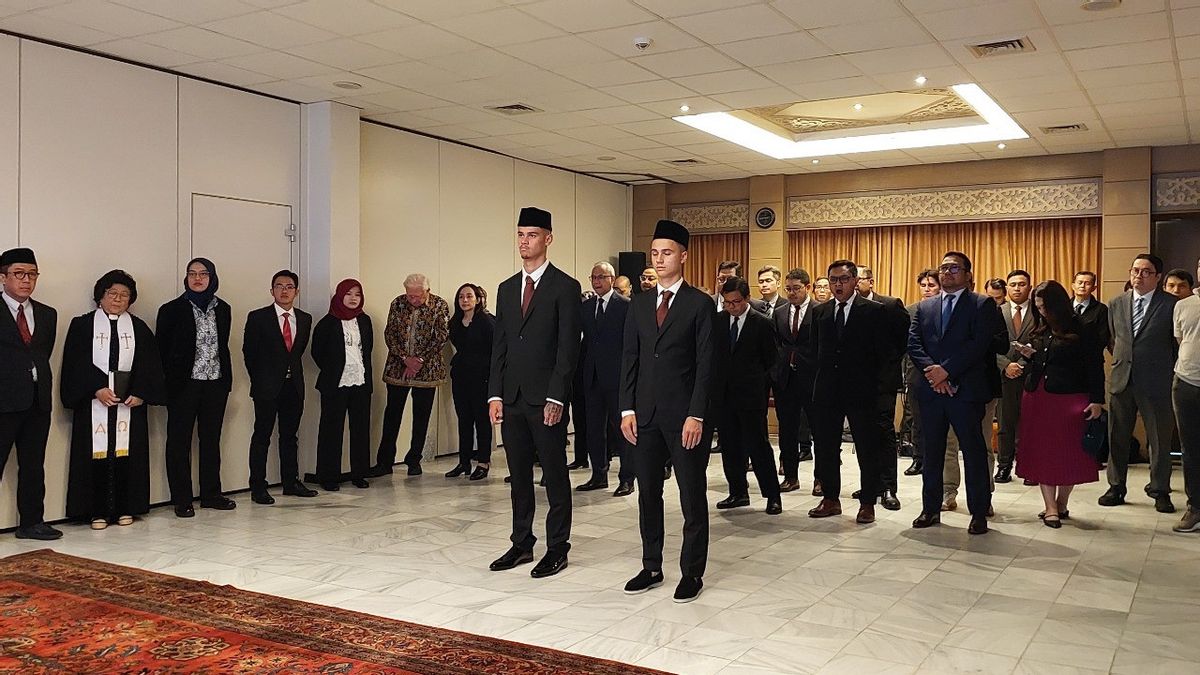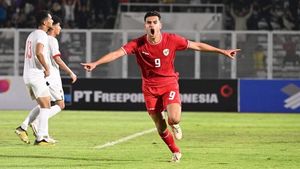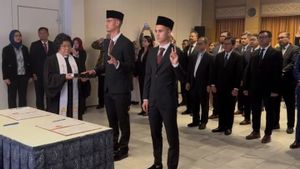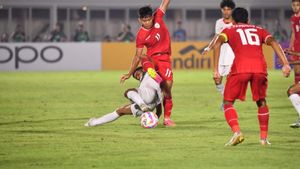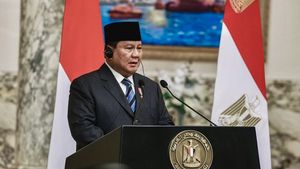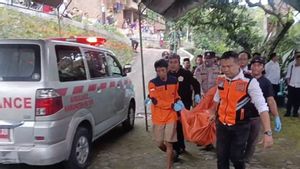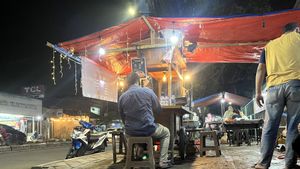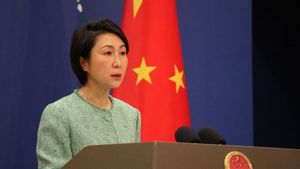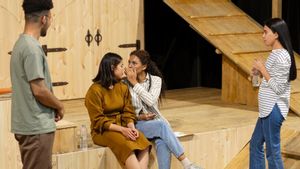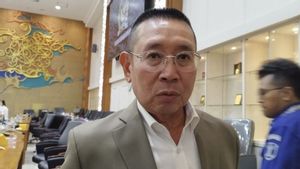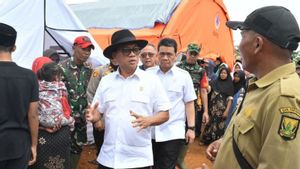The Directorate General of AHU at the Ministry of Law and Human Rights (Kemenkumham) has completed the naturalization process of Mees Victor Joseph Hilgers and Eliano Johannes Reijnders. The ceremony of taking oaths and pledges led by the Director General of AHU, Cahyo Rahadian Muzhar, at the Indonesian Embassy for Belgium, Luxembourg, and the European Union.
In leading the oath-taking, Cahyo emphasized that this naturalization process is an important part of the government's efforts to strengthen the Indonesian National Team in facing various international agendas, including the 2026 World Cup Qualification.
"Naturalization is a strategic mechanism that we take to strengthen national sports human resources. Through this policy, we can attract quality athletes who have great potential to contribute to making Indonesia proud in international competitions," explained Cahyo in Brussels, Belgium, Monday 30 September.
This naturalization process is expected to have a direct impact on the Indonesian National Team which will compete in the third round of the 2026 World Cup Qualification in the Asian Zone. In that match, the national team is scheduled to face Bahrain and China on October 10 and 15, 2024.
The presence of Hilgers and Reijnders is expected to strengthen Indonesia's back line and increase hopes of qualifying for the 2026 World Cup finals. Both players are also projected to participate in a number of other major tournaments, such as the 2024 ASEAN Mitsubishi Electric Cup and the 2027 AFC Asian Cup.
Cahyo added that Hilgers and Reijnders naturalization is part of the government's great strategy to achieve the vision of Indonesia Gold 2045, where Indonesia is expected to become a developed, independent, and global competitive nation, including in the field of sports.
"The superior human resources are the key to competitiveness, and the naturalization of these athletes is a step to create a more solid, experienced national team and able to compete at the international level," continued Cahyo.
Hilgers and Reijnders are not just an addition on paper for the Indonesian national team, but are also expected to be able to transfer valuable knowledge and experience from European competitions, where they are currently careers. Hilgers, a centre-back who plays for FC Twenty at the Dutch Eredivisie, and Reijnders, full-backs who strengthen PEC Zwolle, are expected to bring training methods and professional mindsets that can have a positive influence on local young players in Indonesia.
Furthermore, Cahyo stated that this naturalization is a strategic step in preparing Indonesia to face various big football agendas.
"The naturalization of athletes is not only important to improve the quality of the team's game, but also to build a more diverse and experienced team, which is very much needed in international competitions," said Cahyo.
The Indonesian government is also committed to continuing to oversee this naturalization process as a form of real support for the development of national sports achievements.
SEE ALSO:
In addition to football, the government is designing broader policies to attract Indonesian diaspora, both former Indonesian citizens and Indonesian descendants, to return to being citizens and contribute in various fields, including science and technology. This is in line with Indonesia's great ideals to become a developed and highly competitive country in various sectors, including sports.
Cahyo also expressed his appreciation for the support of all parties involved in this naturalization process, starting from President Joko Widodo, President-elect Prabowo Subianto, DPR RI, to the football-loving community in the country.
"The strong collaboration between various parties is the key to the success of the completion of this naturalization process. We hope that the joining of Mees Hilgers and Eliano Reijnders will further advance Indonesia's football achievements," he concluded.
With the naturalization process that has been completed, the government hopes that the Indonesian National Team can be more competitive in international events and achieve long-term targets, namely being ranked in the top 100 FIFA and the top 10 of Asia. Support from the government and society is considered an important element to encourage the development of national football and provide optimal facilities and training for athletes.
The English, Chinese, Japanese, Arabic, and French versions are automatically generated by the AI. So there may still be inaccuracies in translating, please always see Indonesian as our main language. (system supported by DigitalSiber.id)
